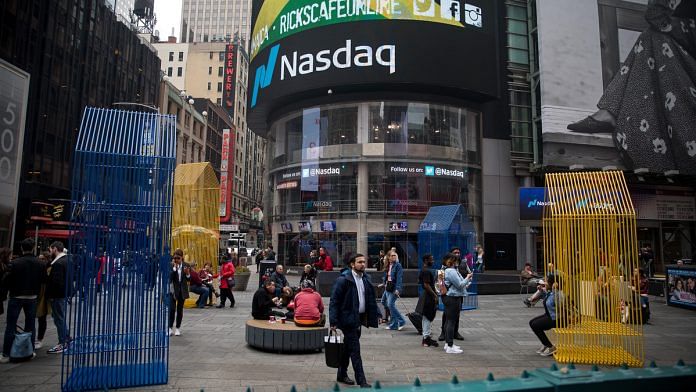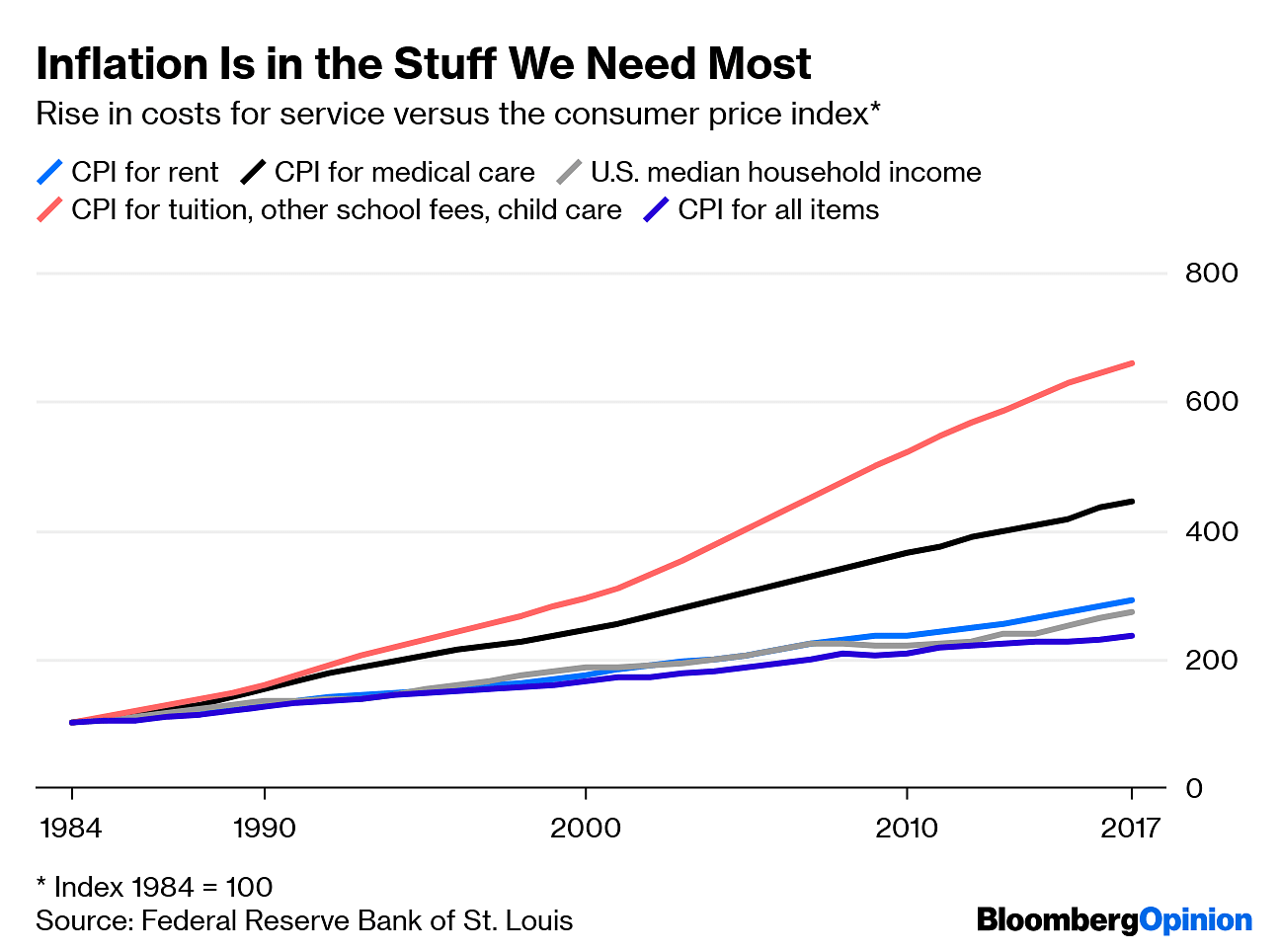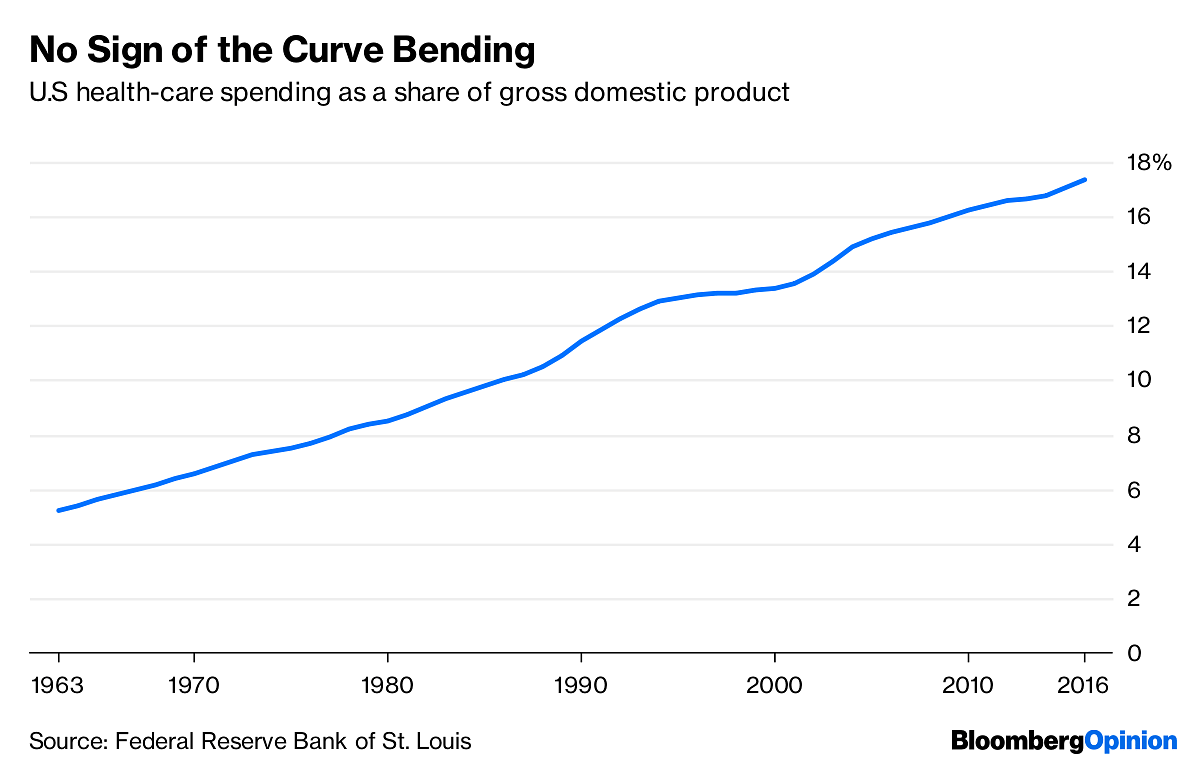When even leading economists are questioning the very idea of capitalism, you know the system is in trouble. In a recent article, Nobel economics winner Angus Deaton reviewed two books by other distinguished economists — Raghuram Rajan and Paul Collier — that argue that capitalism is fundamentally flawed. Rajan laments the demise of local communities in the face of big government and mass markets, while Collier discusses the tendency of meritocracy to concentrate talent and money. Meanwhile, income and wealth inequality is at the center of the well-known critique of capitalism by economist Thomas Piketty. Some critics of capitalism argue that the problem is monopoly power, while others say that capitalism is the culprit behind climate change.
These critiques of the modern economy have some validity. But in the rush to bash capitalism — or to capitalize on the sudden unpopularity of the term — the critics haven’t done a good job of defining what capitalism means. Does it mean private property? Private ownership of industry? Market economies? Public asset markets and joint-stock ownership? Often, the term capitalism seems like simply a stand-in for whatever market-like features of modern economies someone doesn’t like.
The really important question, therefore, is not whether capitalism is broken, but what should be done to fix the US economic system. For much of the 20th century, the big idea was to construct an alternative system — socialism, communism or anarchism — from the ground up. But that approach largely failed, for any number of reasons. Economic systems are complex constructs that evolve over time — even a very smart group of people is going to make huge mistakes if they try to engineer something totally different. And the implementation of radical social change is never easy — revolutions tend to be violent and chaotic, and the people who wind up in power are often those who are most concerned with preserving their dominance rather than providing for the material welfare of the people they rule over.
Instead, it seems overwhelmingly likely that the most successful approach will be to modify the current system — to reform rather than revolt. Whatever the result, it will be a mixed economy, where government and the private sector’s roles are both altered somewhat to address the most pressing issues.
As for what those modifications should be, I tend to think that there are basically two changes that the US needs to focus on. The first is sustainability: no system, capitalist or otherwise, will last long if climate change make the planet uninhabitable. Switching to a low-carbon economy will require major inputs from both the public and private sectors.
The second major challenge is to make Americans feel less materially insecure. Instead of looking at aggregate economic numbers — gross domestic product, or the share of wealth held by the 1 per cent — we should look at the basic determinants of material comfort and security.
Here, we can see that a few big-ticket items weigh heavily on Americans’ household budgets. Even as consumer prices overall have risen more slowly than income, the prices of health care, tuition, and child care have risen much faster:
Health care is obviously the biggest sore spot. A big medical bill is the quickest way to fall out of the middle class and analyses show that health-care expenses are the leading cause of personal bankruptcy filings. Large deductibles have shifted ever more of the cost of care from insurance companies to patients themselves. Millions of Americans are still uninsured, and Republican efforts to kill the Obamacare system might worsen the problem. Meanwhile, health-care costs continue to rise, absorbing an ever-greater share of the US economy:
The obvious way to address this problem is for the US to do what every other advanced nation has done, and have the government offer universal health insurance. This will reduce gnawing uncertainty for countless Americans, and will also enable strict and effective cost controls.
The second thing Americans need is cheaper education and child care. With dual incomes having become the norm, most two-parent families are exposed to the soaring cost of child care. And with a college degree having become ever more crucial for upward mobility, rising tuition has become a formidable barrier to higher education. Subsidized child-care services coupled with increased child-tax credits can help parents stay in the workplace, while there are many steps that can be taken to make higher education more affordable for lower- and middle-income Americans.
Finally, although it hasn’t risen as fast as health care or child care prices, housing costs have outpaced income since the Great Recession. In some cities, the problem is already at crisis levels. A plan for nationwide affordable housing, such as the one recently offered by Senator Elizabeth Warren, would help prevent the crisis from going national.
Would greater environmental sustainability and cheaper health care, child care, tuition and housing be enough to make Americans feel like capitalism — or more accurately, the mixed economy — is once again working in their favor? It might. And unlike the daunting task of building an entirely new political and economic system from the ground up, these fixes are feasible and fairly well-understood. Before deciding that capitalism — whatever that even means — needs to be dismantled, try addressing the sore spots.
Also read: Monopoly was created 100 years ago to teach the dangers of capitalism






Capitalism is a disgrace on humanity. The very fact that in the capitalist world, the deprived, the BORN poor & penniless millions, worldwide make up the 99% of humanity ought to awaken the sensible to the truth that capitalism is fundamentally flawed. It is an incurable ill of capitalism. No reform can rid capitalism of this ill.
Like it or not, Brahmins have cleverly turned anything against them as anti hindu which taken further as anti national. Secondly, no caste wants to seem align to dalit as it is their notion that they are aligning with dalit. Thirdly Dalit have not been able to carve out themselves as political dominant in any one state, so that others look in awe. Fourthly dalit have not shown economic independence. Once these things get cleared, and they will , in time, dalit will have their history written all over india
Like democracy, capitalism is not perfect, but it beats all other alternatives by a mile. China’s miracle, its spectacular growth, lifting virtually all of its poor out of want in less than half a century, would not have been possible without capitalism. 2. There are growing concerns about inequality which need to be addressed.
How would you address the continually widening wealth & income inequality, sir ? As I see it, the concentration of huge wealth in a few hands, the 1%, leading to the impoverishment of millions, the 99%, reflects the fundamental law of the market economy ( commodity economy ), and the capitalist economy is essentially a market economy. Thus, the growing wealth & income inequality is inherent in the capitalist order. The fact is all attempt to address this great big problem has failed ignominiously, which fact has led the New Zealand PM to brand capitalism a ‘ blatant failure ‘ very recently. I think it’s about time we thought over how to switch over to communism, the only stuff that can rid humanity of the disgusting capitalism.